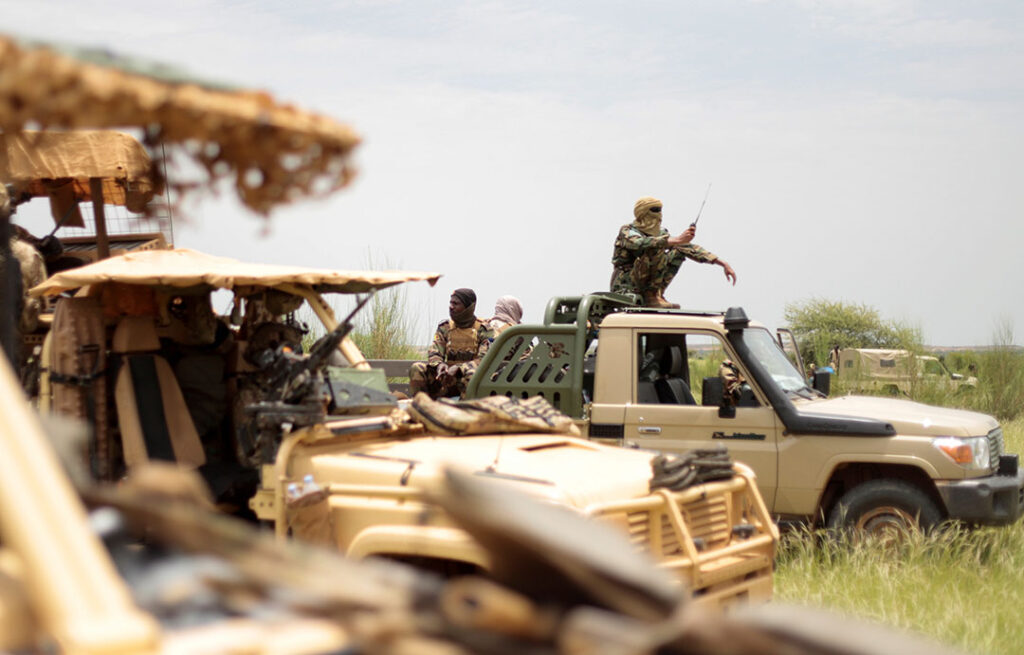ADF STAFF
The Islamic State Sahel Province (ISSP) has in the last year gained significant territory from a rival group in Mali, increased religious tax collections known as zakat, and expanded recruitment efforts throughout the Sahel.
Analysts with the American Enterprise Institute’s Critical Threats Project say the ISSP now operates a hub for foreign fighters from North Africa and Europe, which could lead to increased terror attacks in Europe, North Africa, the Sahel and West Africa.
“Foreign fighters are more hardened ideologues that ascribe to transnational Salafi-jihadism and are not as interested in the local aims or grievances that motivate local militants,” Liam Karr, an analyst for the Critical Threats Project, wrote in a report for the Institute for the Study of War (ISW).
“Many foreign fighters have also demonstrated an interest in returning to their countries of origin to organize attack plots after being further radicalized in an active conflict theater,” Karr added.
The U.N. Security Council reported in July 2023 that the ISSP is using its burgeoning support zones to better communicate with the Islamic State West Africa Province faction in the Lake Chad Basin for logistical and recruitment purposes.
The U.N. also reported the group has established transit corridors between southern Europe and the Sahel and organized a terror cell operating out of Morocco and Spain.
In February 2023, Moroccan authorities arrested an Islamic State (IS) group-affiliated suspect near Rabat on suspicion of involvement in preparing a terrorist attack, the Morocco World News newspaper reported. The 24-year-old man had expressed interest in learning how to manufacture explosives and joining IS affiliates in the Sahel.
The previous month, Moroccan authorities dismantled a four-member IS cell active in Beni Mellal, Casablanca, Inezgane and Tangier. The suspects were accused of coordinating recruitment efforts with IS leaders in the Sahel-Saharan region, with several weapons seized during the arrest.
Moroccan authorities in October 2023 arrested four IS-affiliated suspects during operations in Tangier, Tetouan and Inzegane Ait Melloul, Morocco World News reported. During the arrests, authorities seized bladed weapons, documents promoting IS ideology, and information related to joining IS camps in the Sahel.
In Mali, the ISSP doubled the territory it controlled from 2022 through the first half of 2023, including taking swaths of northeastern Mali previously controlled by the al-Qaida-linked Jama’at Nusrat al Islam wa al Muslimeen (JNIM) terrorist group and pro-junta militias, the U.N. reported. The ISSP began a resurgence in Mali shortly after the country’s July 2021 coup.
The ISSP has nearly tripled its monthly rate of attacks in Niger since the country’s July 2023 coup, according to the institute. The group averaged more than seven attacks per month since August after attacking about 19 times in the first seven months of 2023.
Although the ISSP often battles with JNIM, analysts say the groups reached a possible agreement in 2023 that led to fewer clashes along the Mali-Niger border. The groups also sometimes collaborate.
In November, the IS and JNIM were accused of killing 200 Nigerien Soldiers and wounding 34 others during ambushes in Niger’s Tillabéri region, near the tri-border area with Burkina Faso and Mali. The operations involved hundreds of terrorists who used vehicle-borne improvised explosive devices in their attacks, according to Niger’s Defense Ministry.
The IS in late March was responsible for another attack that killed 30 Nigerien Soldiers and wounded 17 more in Tillabéri. The Nigerien Defense Ministry described the attack as a “complex ambush” involving more than 100 armed men on motorcycles and in vehicles who used IEDs and suicide bombs.
The Soldiers were working to “reassure local people” who were targeted by armed groups who engage in “murders, extortion and cattle rustling,” the ministry said.
Karr reported in March that the ISSP and JNIM recently fought in northeastern Mali for the first time since December 2023.
“This clash could signal an end to the informal détente and draw resources away from both groups’ other campaigns in adjacent areas of Burkina Faso, Mali, and Niger and toward each other,” Karr wrote in an ISW report.

